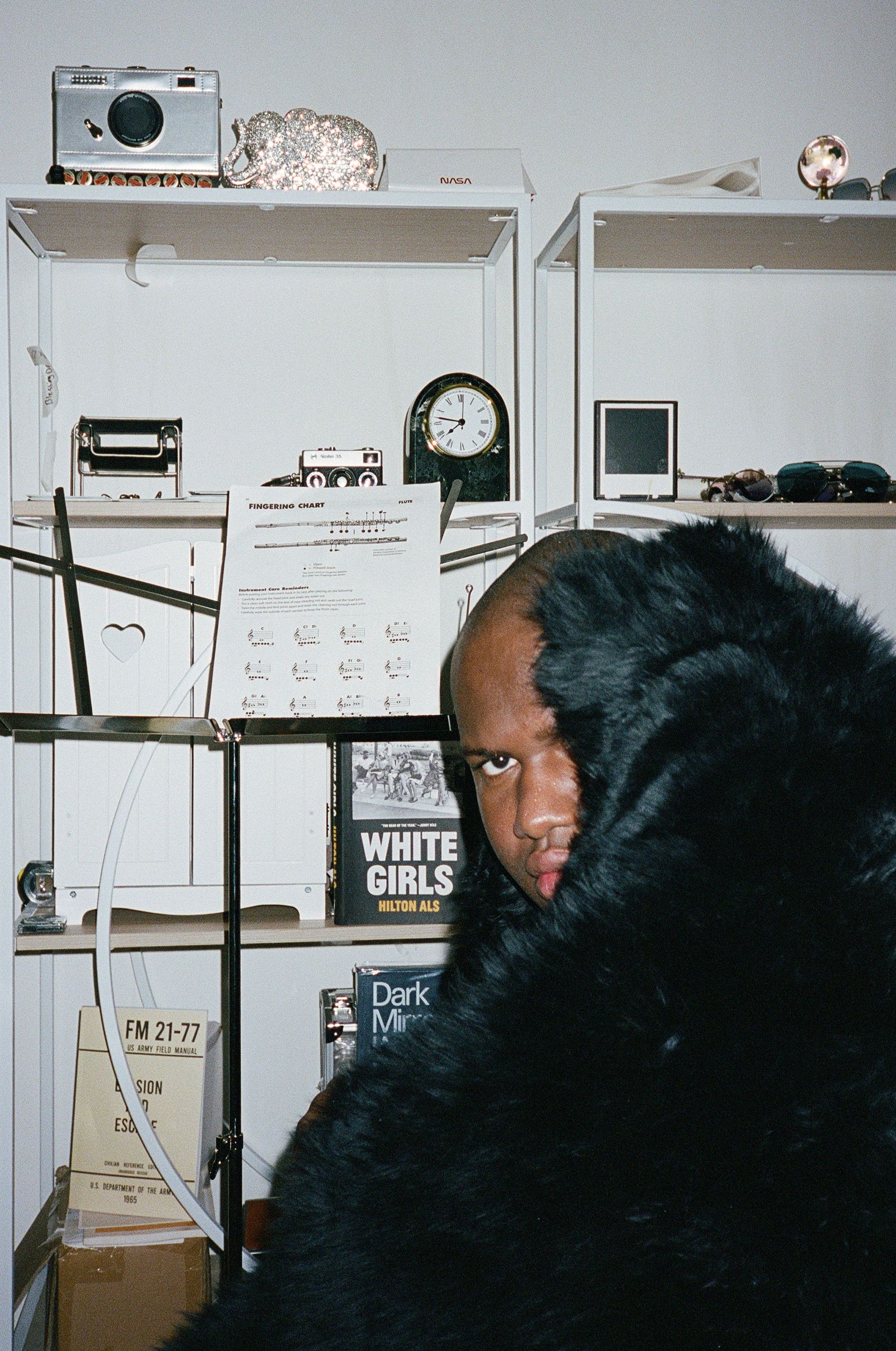
A self-portrait of Kayode Ojo for PIN–UP. © Kayode Ojo. Courtesy of the artist and 52 Walker.

A self-portrait of Kayode Ojo for PIN–UP. © Kayode Ojo. Courtesy of the artist and 52 Walker.
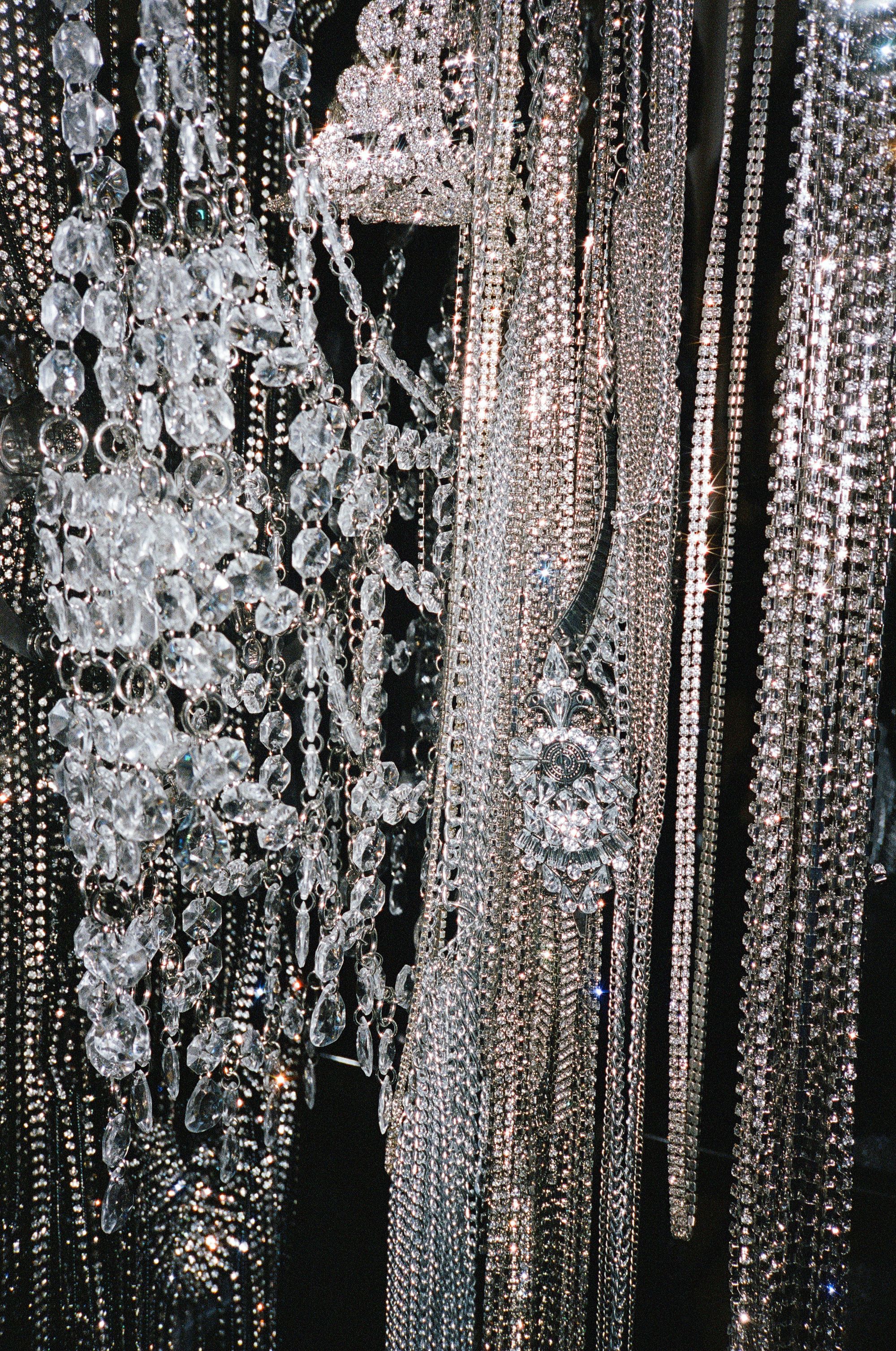
Photography by Kayode Ojo for PIN–UP. © Kayode Ojo. Courtesy of the artist and 52 Walker.
Over 100 years have passed since Marcel Duchamp debuted his thinking-man’s urinal. Fountain (1917) was an embryonic play on meaning and commodity fetishism, an irreverent stunt that forever altered how art — and its artist — were culturally understood. Like Duchamp in his heyday, artist Kayode Ojo paints a complex portrait of modern existence through his selective inventory of the commodity objects available at our fingertips. When we speak, the 33-year-old is preparing for his solo exhibition, EDEN, a sculpture show at David Zwirner’s sprawling 52 Walker, led by director Ebony L. Haynes, in New York’s Tribeca. Our conversation veers from mumblecore filmmaking to Ariana Grande lyrics, a form of hyper-specific versatility that also characterizes Ojo’s creative output. Contending with the impossibility of true authenticity, his opulent sculptures take the form of online-sourced assemblages of clothing, jewelry, and furniture, and are often exhibited alongside his intimate portraits à la Nan Goldin (he studied photography at the School of Visual Arts). “My work often looks backwards, but usually toward anachronistic forms. It’s not a heavily digital practice — my photographs are all on film,” he says. Even the contemporary mass-produced objects he uses for his sculptures, like a ball gown or a tuxedo — what he calls “empty objects” — are nostalgic signifiers of “antiquated forms,” rife with cultural resonance.
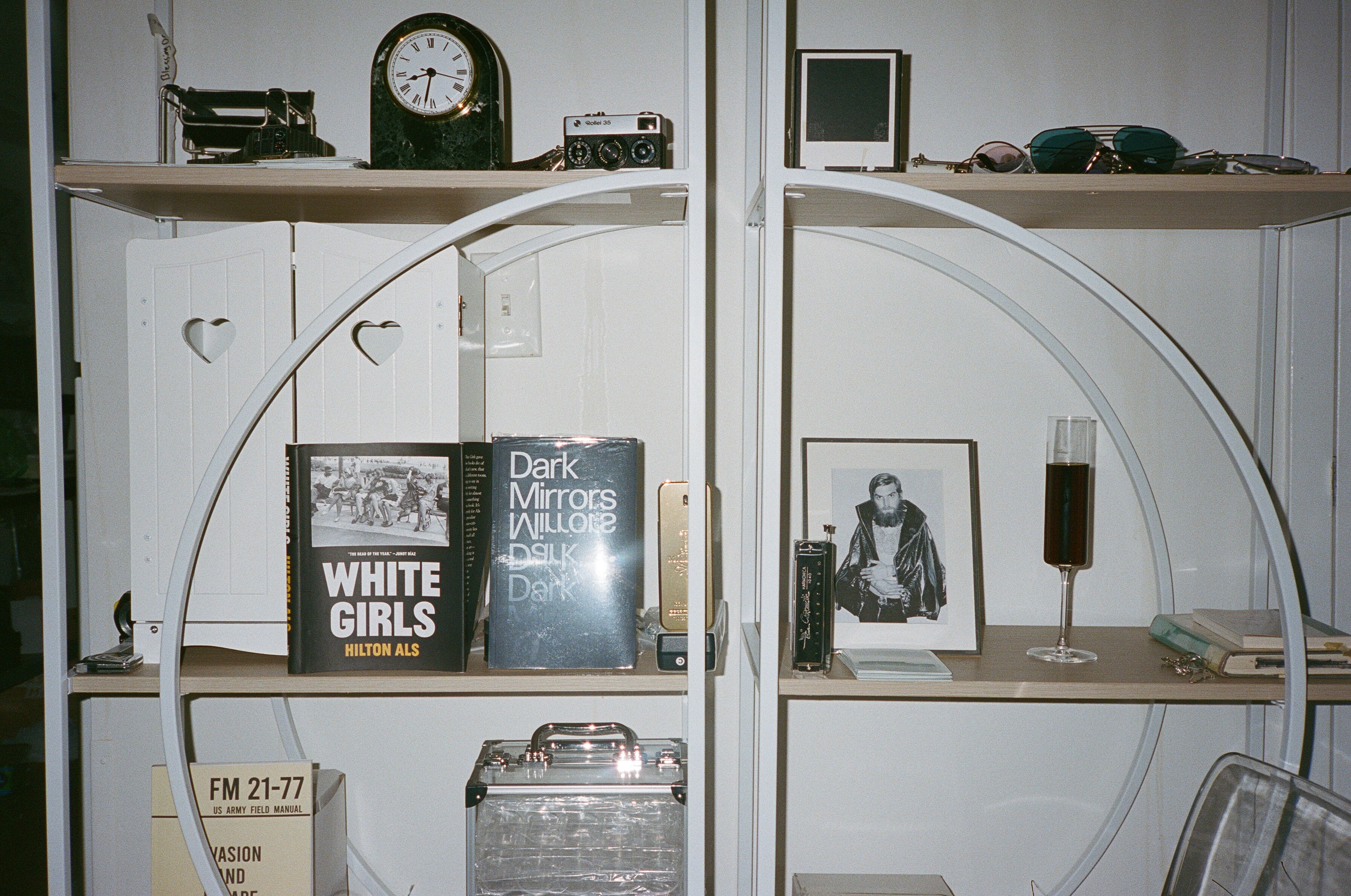
Photography by Kayode Ojo for PIN–UP. © Kayode Ojo. Courtesy of the artist and 52 Walker.
Over the past few years, Ojo has developed a signature penchant for high/low material combinations, or “fractals.” The high — Marcel Breuer-style chairs, luxury vintage and designer pieces — and the low — cheaply-produced Ikea furniture, Amazon-sourced chandeliers, and fast-fashion dupes from Zara and Shein — coalesce in cinematic mises en scène that reverberate with the potential for life, or of life already lived. Take Untitled (2017): a brown-velvet sofa sourced from ABC Carpet & Home stands upright on its end, a sequined silver ASOS prom dress draped over it, the train dramatically suspended in mid-air. Ojo creates all his work without adhesives, assembling everything onsite: “Nothing’s really produced. It’s all held together by gravity,” he says. Beneath the sofa, the caption reads: “Dark chocolate ABC Home sofa/couch, women’s silver sequined long-sleeved formal evening prom maxi cocktail party dress.” With this terse little list, Ojo destabilizes, and perhaps even democratizes, the absurdity of art-world valuations and the economic operations of present-day life. “The titles are what the works are. They include objects that no one archives,” he explains. “There are things I’ve put in museums that would never have been in a museum, things that would never even have been named, because no one else has assigned value to them. The idea is that there are no secrets in the artwork — some people are tickled by the thought that they could very easily find every object I used and reproduce the piece.”
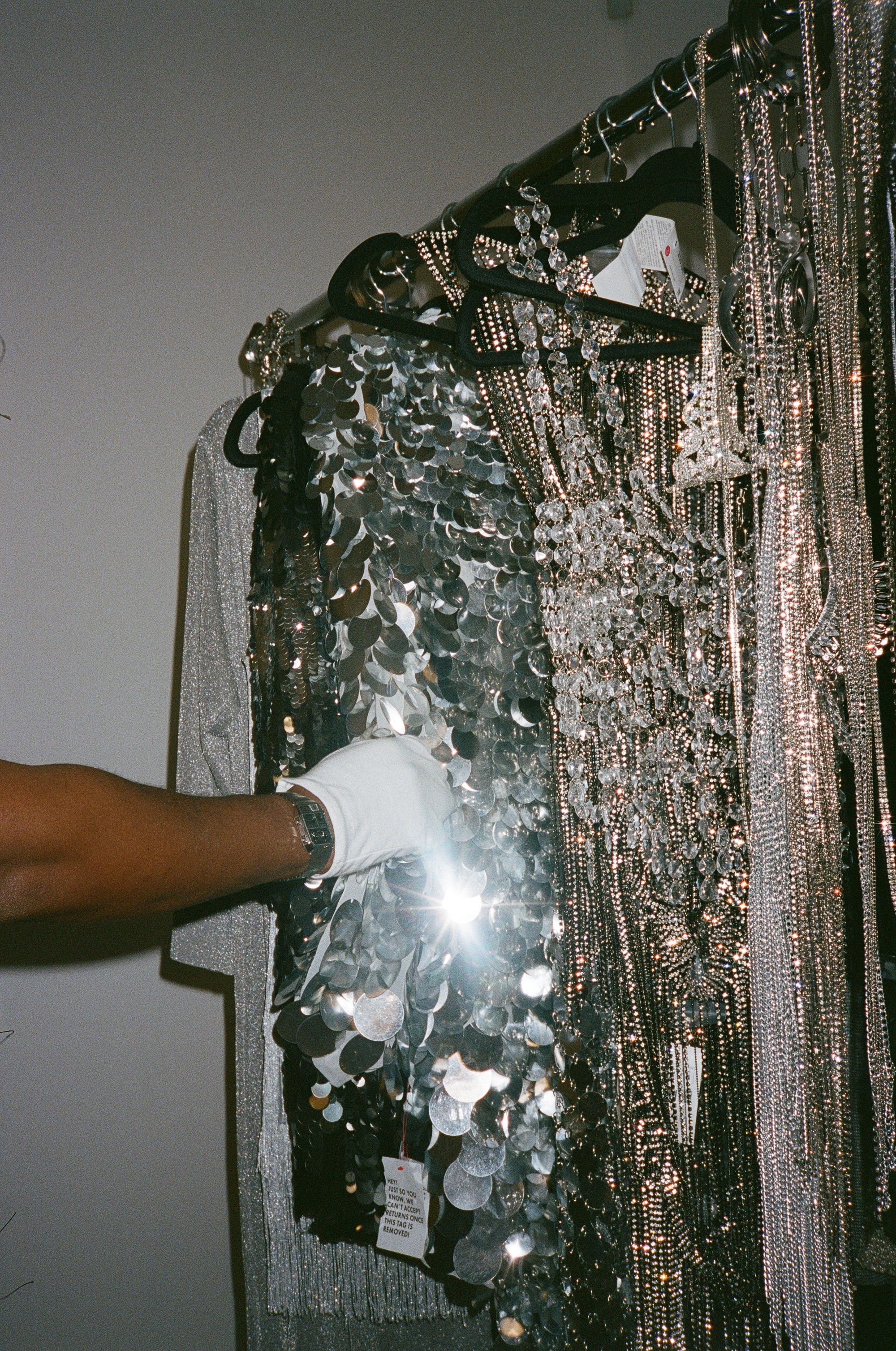
Photography by Kayode Ojo for PIN–UP. © Kayode Ojo. Courtesy of the artist and 52 Walker.
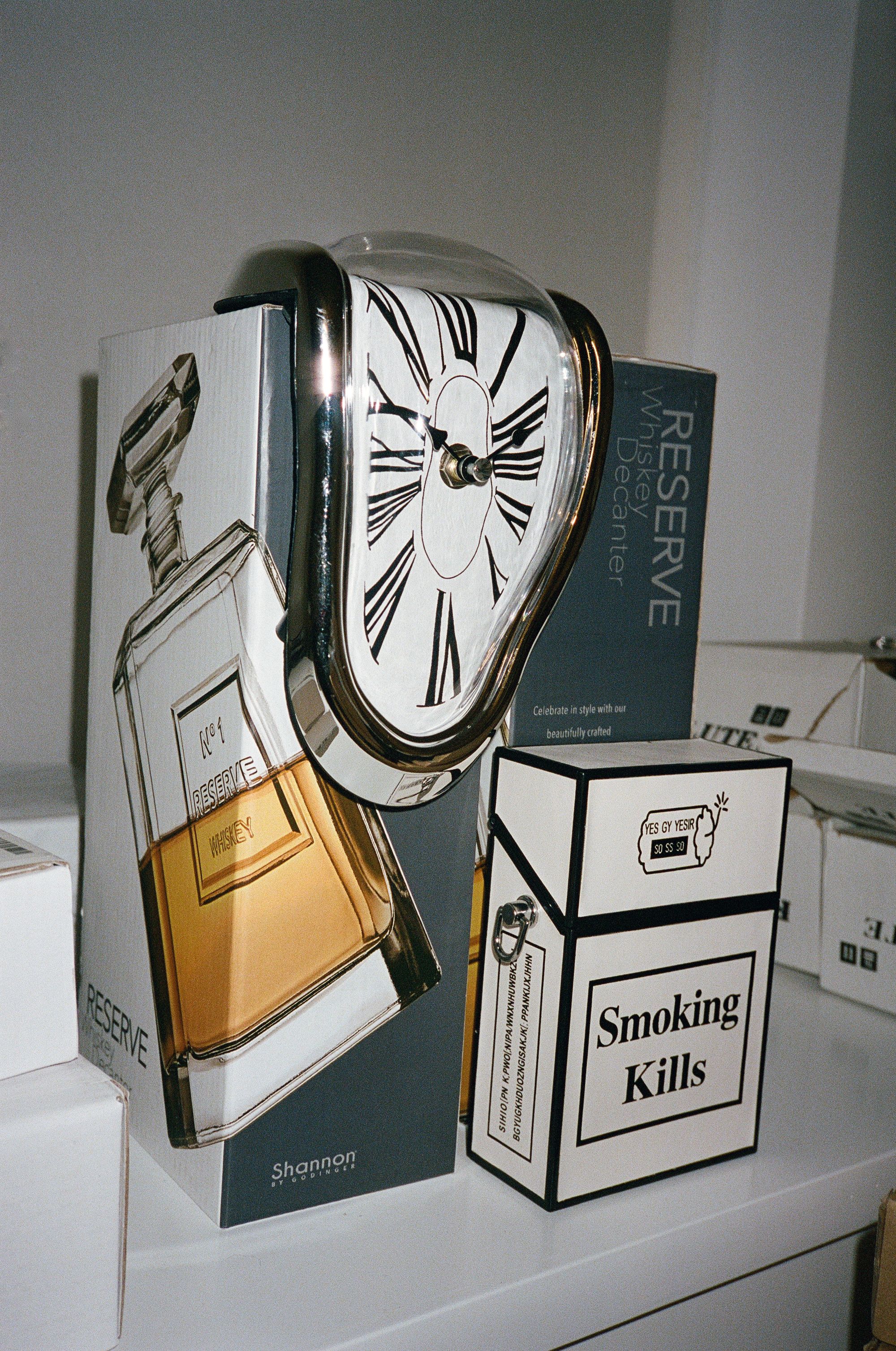
Photography by Kayode Ojo for PIN–UP. © Kayode Ojo. Courtesy of the artist and 52 Walker.
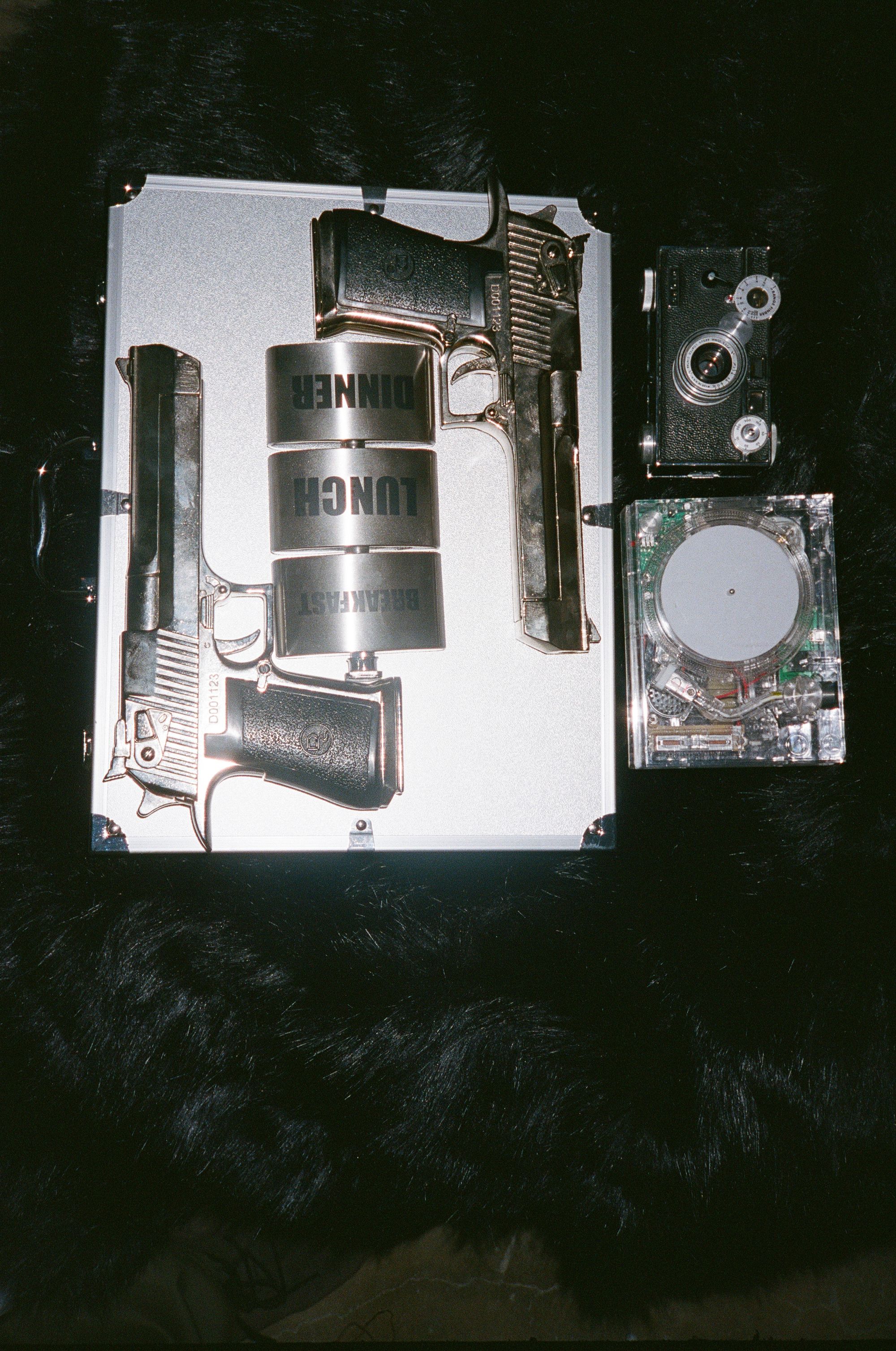
Photography by Kayode Ojo for PIN–UP. © Kayode Ojo. Courtesy of the artist and 52 Walker.
EDEN, for Ojo, is an investigation into the visceral power and spirituality of everyday objects, particularly how they signify social aspiration with respect to race and class (Ojo was raised Evangelical Christian in Cookeville, Tennessee, where he read the Bible twice a day with his parents). “The show is visually very brown,” he says. “I’ve been thinking about the Black middle class as a utopia related to Eden, a kind of paradise lost.” For Ojo, the Book of Genesis, the origin story of the universe, is only a few pages — a detail that struck Ojo as representing a “period of time when humanity had this perfect moment that was so short. And that’s how I see the Black middle class, which has, historically, always been wiped out.” He pauses for a moment. “It’s this moment of peace that American society just does not want to happen.”
Perhaps then, the sculptural tableaus that Ojo assembles are — if only provisionally — a thrust of Utopian rumination, where Things become Us and We become Things in one blissed-out, celebratory union. What Ojo presents, using the variegated material conditions of our present moment, is a look into a postlapsarian world of authentic being. That is, if any of us know what “real” even is, anymore.
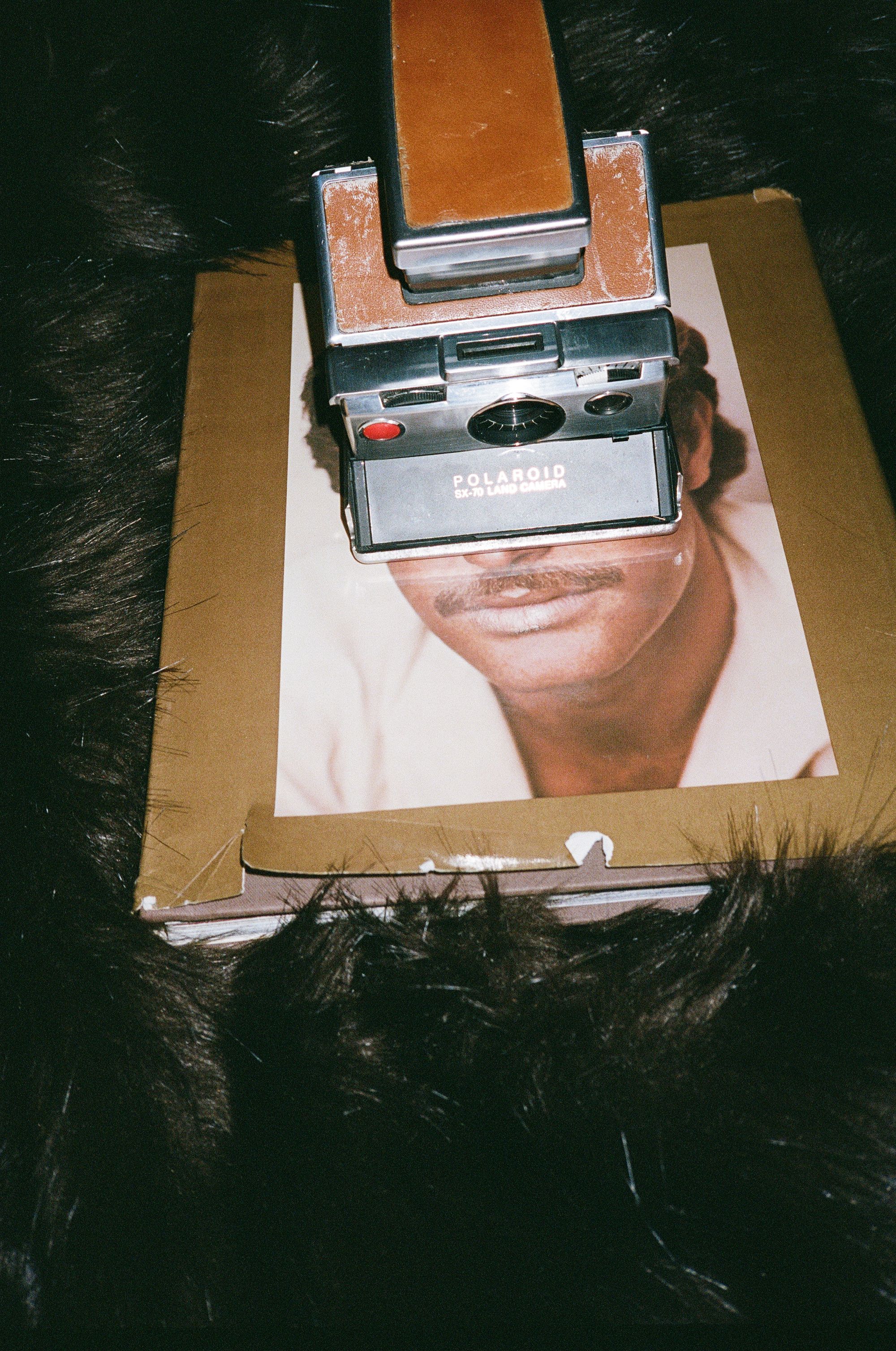
Photography by Kayode Ojo for PIN–UP. © Kayode Ojo. Courtesy of the artist and 52 Walker.
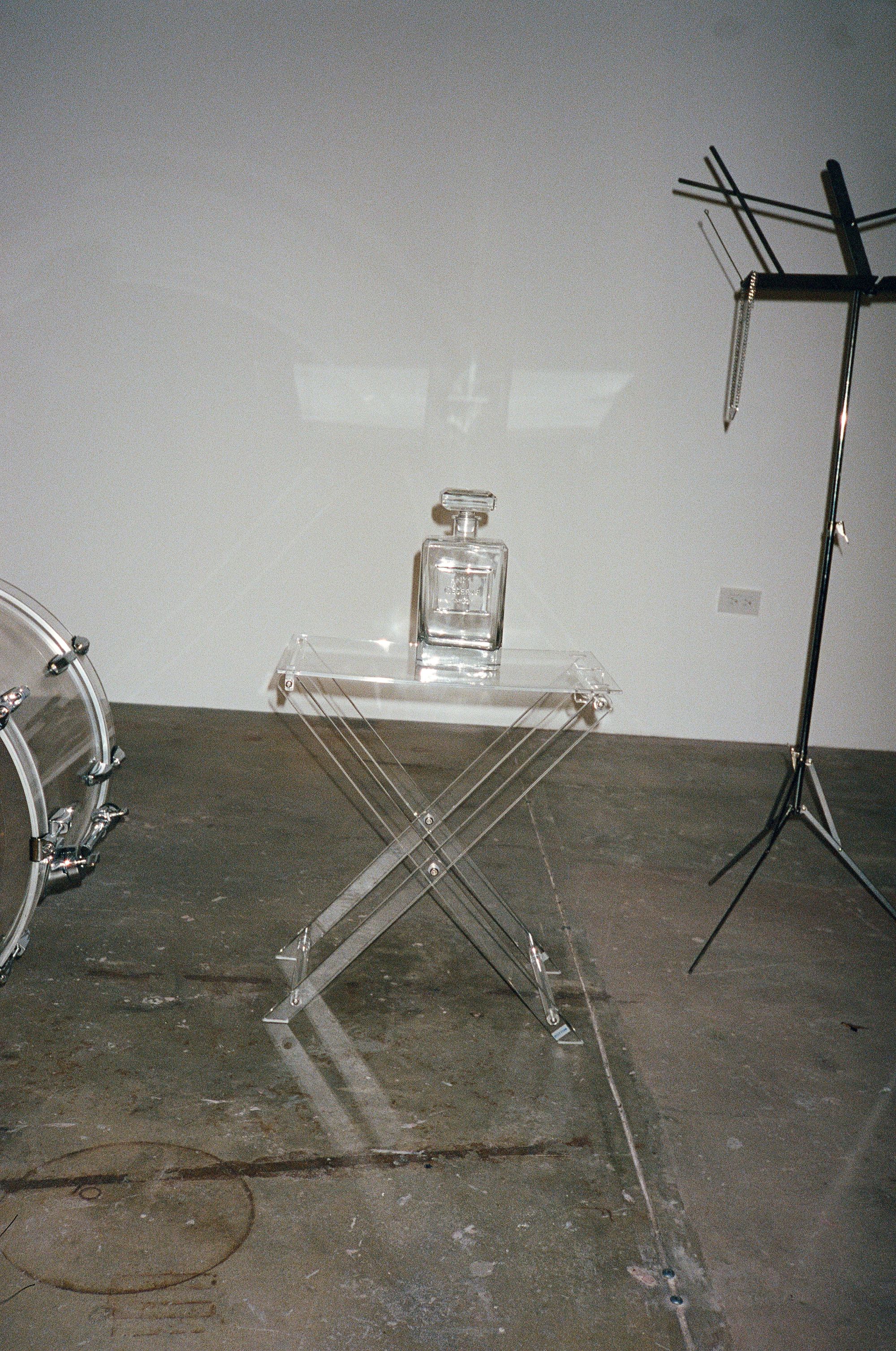
Photography by Kayode Ojo for PIN–UP. © Kayode Ojo. Courtesy of the artist and 52 Walker.